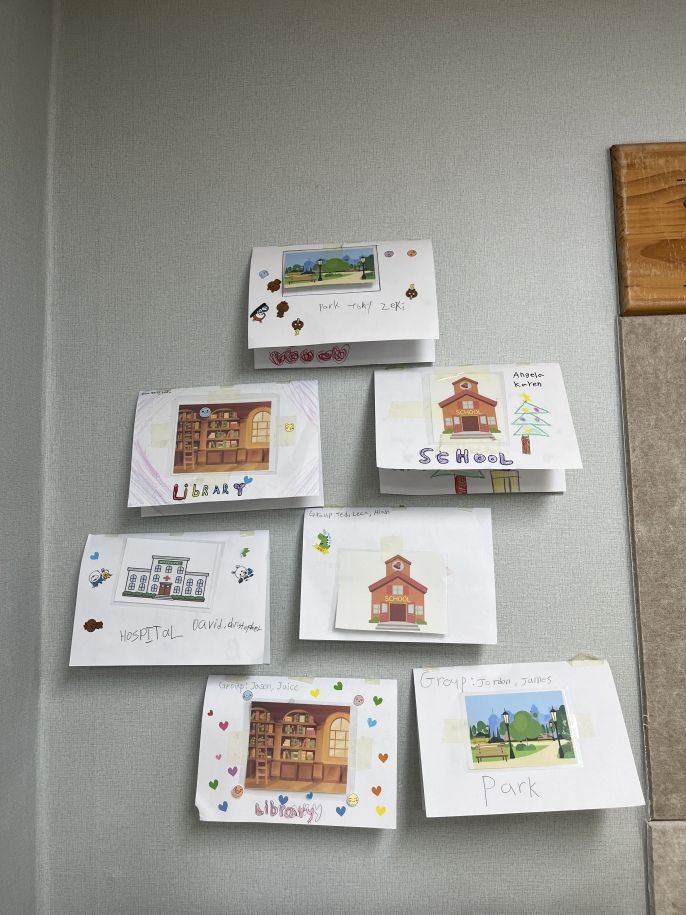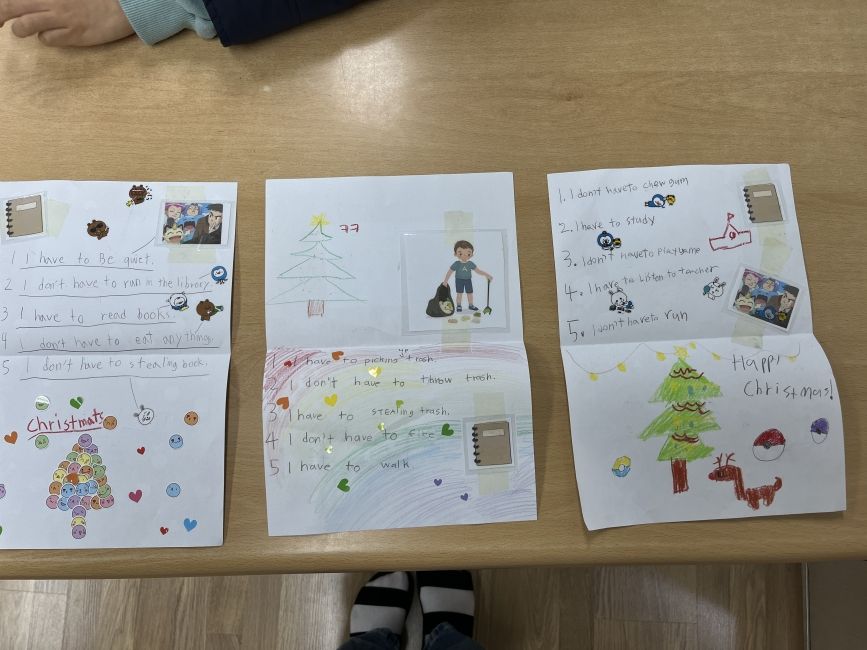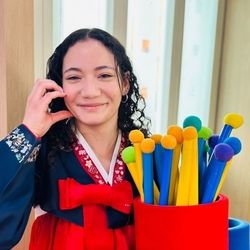Teaching Abroad and the Roles We Play
The Different Roles a Foreign Teacher Must Play:
Most people, myself included, who have very little teaching experience are likely to think that teaching English abroad is just that: teaching English. But it is so much more… I have been teaching in South Korea for about 4 months now and I have added a new role that I must fulfill each month. My first role that I had to fulfill was the easiest: be an English Teacher. This was what I expected and I was fully prepared to do well at this job after going through the CIEE TEFL course. Of course, there were some areas for improvement since I was inexperienced with teaching (only a few side hustles). So my first month was fairly smooth sailing.
Then October rolls around and I realize that there is so much more to being a teacher than I originally thought. October came and I realized that another role of a foreign teacher is to be a parental figure or rather a figure in the children’s life that can provide comfort and fun. Here in South Korea, the hustle and bustle of life and responsibilities starts very early. These children are so driven with their extracurriculars and regular school that when they come to the academy they want to chat with their friends, talk about their day, and get encouragement from their teacher. This part of the job allows for connection building and has made the atmosphere in the classroom more comfortable.
(Let me skip November for one second because that was a big role that I have a lot to share from.)
Come December… I have come to the realization that I am not in fact just an English teacher. Since living in Korea, I have met a lot of other English teachers and we have had many conversations where we have compared our jobs and schools. Some of my friends have to teach English, science, social studies, reading, writing, speaking, art, etc. At first, I just explained that I had to teach English Speaking. However, as I had delved deeper into the material, I have had to become an art teacher for poster and project times that have started appearing in the textbooks for higher levels. I have to be a home-ec teacher for special days held by the school to help the kids learn about Korean culture through food. There are many more that I am learning about along the way, but let’s get to the main course of this blog post.

Parent Presentations: The Scary Part of Teaching Abroad
It’s not all that scary, but if you are an anxiety-stricken overthinker like me then keep reading for some insight into these events and some tips that helped me overcome my anxiety and perform well.
When November came around, I realized one of the most important jobs of being a foreign teacher is being a positive face for the school. Our job is to show the difference that Korean only English schools and Korean and foreign teacher schools are. We are meant to show positive exposure to new cultures and accents. We are meant to have a warm face and positive personality that the kids enjoy and learn well from. On top of all of this, we have to show this to the parents through photos, videos from class, and parent presentations. At my current school, I have had the pleasure of participating in two parent presentations (one for kindergarten and another for Elementary and Middle school). Here are some tips that helped me overcome my fears:
Be confident in the decision made…
So, for me I personally felt very out of place and anxious when my school chose me to give the English portion of the presentation. I am the youngest teacher at my school, with the least experience and least amount of time spent at the school. I thought I was unqualified and unprepared, but my directors and head teachers believed in me. So, one tip is to have confidence in your superiors. If they chose you to give the presentation then there must be a reason. They could always just as easily give a presentation without a demonstration from the foreign teacher, so they chose you for a reason.
Dress for the part you want to be perceived as…
On the days of the presentations, I dressed up in slacks and blouses. It helped me appear older and more put together. This alone helped me feel more confident as I felt like I would be perceived and taken more seriously. Which I was, because parents felt like they could approach me with their concerns and an update on their children’s progress.
Practice…
I know this one is fairly obvious. But practice whenever you have time. Practice in front of the other foreign teachers to get any advice on how to make an explanation better. Practice in front of the Korean teachers in order to get advice on how to simplify anything that the parents may not understand (most parents will not know that much English so demonstrations should be done exactly how you would perform them in class with the children).
Be friendly…
This is one that I did not really adhere to until the second presentation. But be a friendly face, greet the parents, smile, help lead them to their seats, stay a little bit after for any questions and to help clean up. This shows that you take your job seriously, understand a little bit about Korean culture, and are willing to be helpful to them in any way that you can despite the language barrier that may be present.
Use lots of Body Language…
I do this for the kids when I am teaching, but don’t lose it just because now you are showing a lesson to adults. The use of body language will help keep the parents engaged even if they do not understand everything you may be saying. It will help them determine the meaning or what exactly you are asking of them. If they do not know an answer or understand the question you asked, do not let the room linger in silence. Pick up the slack by being charismatic and using body language to brush off the awkwardness. Smile a lot as well to help them feel at ease. Make eye contact with the parents as well to show that you are engaged, want their input, and want them to be equally as engaged. Eye contact is also a sign of politeness in Korean culture when someone is speaking to you. Try not to be overwhelmed by this fact, most parents will smile back or seem genuinely engaged which will help you (hopefully) feel more confident.
I hope these tips and warnings help some of you on your own journey as a foreign teacher abroad!
Related Posts

CIEE CHINGU – A Partner Program for Teachers in Korea
Chingu ( 친구 ) is the Korean word for friend . CIEE Chingu is a partner program included in CIEE’s Teach in South Korea programs! Our goal is to connect... keep reading

TWICE with CIEE: Kayleigh in Korea (PART 1)
Kayleigh is a CIEE alum who participated in CIEE's Teach in South Korea program AND CIEE’s Teach in Spain Volunteer program! CLICK HERE to read her experience in Spain. WHY... keep reading

Learn Korean with K-Media: Advice from Valerie!
Hello! My name is Valerie, and I will be teaching in South Korea through the EPIK program starting this spring. With my interests being in Korean cultural studies, teaching in... keep reading



